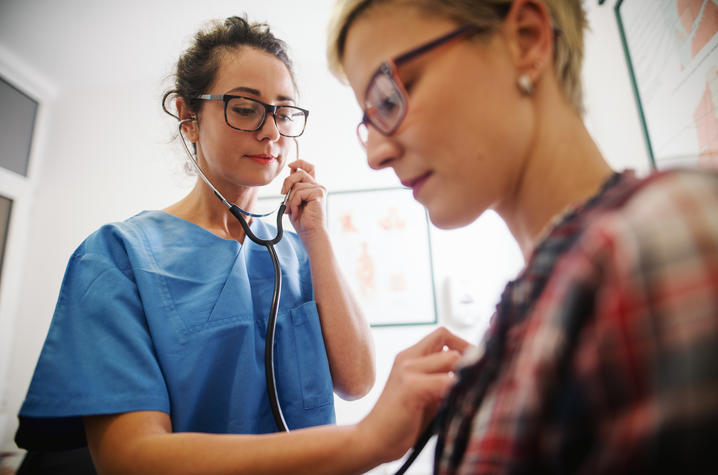Protecting the heart from side effects of cancer treatment

The University of Kentucky Public Relations and Strategic Communications Office provides a weekly health column available for use and reprint by news media. This week's column is by Amit Arbune, M.D., director of the cardio-oncology program at UK HealthCare’s Gill Heart & Vascular Institute.
LEXINGTON, Ky. (Feb. 8, 2023) — Patients with cancer often experience well-known, common side effects, such as hair loss during chemotherapy or skin issues during radiation. However, some patients will experience other cancer therapy side effects that don’t necessarily go away once treatment is complete. In some cases, cancer treatment may affect the heart, causing new problems or worsening existing ones.
Cancer-induced heart problems affect nearly 10% of cancer patients. These problems, including conditions known as cardiotoxicity, can be caused by cancer treatments such as chemotherapy, immunotherapy or radiation therapy. Symptoms of these health issues can develop immediately during treatment, or they can develop decades after cancer survivors complete treatment.
Common symptoms of cancer-induced heart problems include:
- Chest pain
- Shortness of breath
- Leg swelling
- Irregular heart rhythm
When undiagnosed, these issues can be a major cause of death or morbidity for cancer survivors.
Patients with existing heart issues or who have developed heart issues from their cancer therapies, patients who are currently undergoing cancer treatment, and cancer survivors (especially childhood survivors) should talk to their doctor about undergoing further testing to determine their risk.
All patients with a cancer diagnosis undergo rigorous screening for cardiovascular risk prior to cancer treatment. In addition to locating the cancer, providers must ensure the patient's heart is healthy enough to endure the treatment.
One required test is an electrocardiogram (EKG), which evaluates the electrical activity of the heart. When a patient has an abnormal EKG, the patient may be referred to the cardio-oncologist. Other risk factors, including high blood pressure, may also be managed by the cardio-oncologist.
Collaboration between the cardio-oncologist and oncologist is ongoing as they develop a treatment plan to destroy cancer while preserving heart function. Throughout cancer treatment and beyond, patients visit the cardio-oncologist to help ensure early detection of any change in heart health.
UK HealthCare is the hospitals and clinics of the University of Kentucky. But it is so much more. It is more than 10,000 dedicated health care professionals committed to providing advanced subspecialty care for the most critically injured and ill patients from the Commonwealth and beyond. It also is the home of the state’s only National Cancer Institute (NCI)-designated Comprehensive Cancer Center, a Level IV Neonatal Intensive Care Unit that cares for the tiniest and sickest newborns and the region’s only Level 1 trauma center.
As an academic research institution, we are continuously pursuing the next generation of cures, treatments, protocols and policies. Our discoveries have the potential to change what’s medically possible within our lifetimes. Our educators and thought leaders are transforming the health care landscape as our six health professions colleges teach the next generation of doctors, nurses, pharmacists and other health care professionals, spreading the highest standards of care. UK HealthCare is the power of advanced medicine committed to creating a healthier Kentucky, now and for generations to come.




